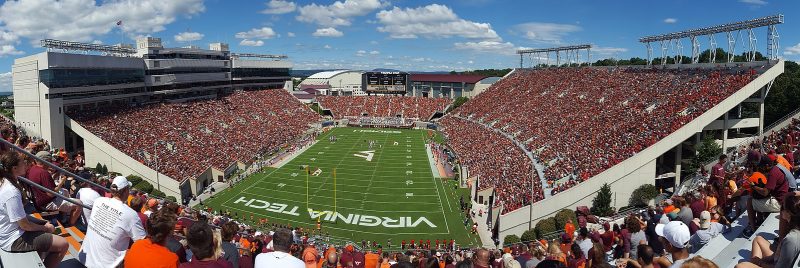Are Expensive Expert Witnesses Always Allowed to Prove Negligence and Fault in Injury Cases?
A bicycle rider was struck by a car while crossing Beamer Way in Blacksburg, Virginia. This recent case occurred near a car crash case attorney Doug Landau of Abrams Landau, Ltd. represented on the Virginia Tech campus.
In this March 2020 case, the defendant driver claimed a bike rider’s negligence contributed to an accident in a Virginia Tech campus crosswalk. Under Virginia law, if the evidence proved the biker was at all negligent in the happening of the crash, then the cyclist would not be reimbursed for any medical bills or other losses from the incident under the Common Law doctrine of “contributory negligence.” In the Commonwealth of Virginia, unlike most other states, contributory negligence is a complete bar to any recovery by an injured cyclist.
This personal injury negligence case stems from an allegation that the defendant Zachary Adams drove into the plaintiff John Lake while Lake rode his bike through a crosswalk and across a street. The defendant asserts the defense of contributory negligence. The injured cyclist’s lawyer brought a Motion to exclude the expert witness the defendant brought.

The United States District Court for the Western District of Virginia in Roanoke’s Judge Conrad decided the matter as follows:
“In support of his defense of contributory negligence, Adams offers an expert, Aaron Prussin. Prussin proposes to offer three opinions on what a “reasonable bicyclist” would have done in Lake’s position before crossing Beamer Way. First, according to Prussin, a reasonable bicyclist would have been traveling slow enough to stop before entering the intersection in order to ensure that any vehicles would stop. Second, a reasonable bicyclist would have come to a full and complete stop before entering the intersection. Third, a reasonable bicyclist would not enter the intersection “without certainty” that any traffic was stopped or stopping. Prussin’s proffered qualifications include commuting daily for about five years, taking part in ‘extensive’ road cycling and riding in ‘a few’ local races and organized rides.
This matter is before the court on Lake’s motion to exclude testimony from Prussin on three grounds. Lake argues that Prussin is not qualified to be an expert, that Prussin’s opinions would not be helpful to a jury and that Prussin’s opinions are unreliable.”
Prussin proposes to offer opinions that would not be helpful to a jury. Accordingly, the court grants the motion to exclude his proposed testimony, and need not rule on whether he is qualified as an expert or whether he applied reliable methods in reaching his opinions.
Some courts have allowed experts to testify about specialized driving scenarios, such as commercial truck driving. In contrast, courts routinely exclude expert testimony on nonspecialized questions about driving.
Looking to the relevant legal standard in this case, the Virginia Supreme Court has ruled that questions of whether a bicyclist at an intersection was contributorily negligent “must be proved according to an objective standard whether the plaintiff failed to act as a reasonable person would have acted for his own safety under the circumstances.”
Further, Virginia courts look to the standard of care exercised by a pedestrian when instructing a jury on the appropriate standard of care for a bicyclist in Lake’s position. Thus, applying Fourth Circuit authority, the court believes that no specialized knowledge is required to rule on this defense, because a lay jury will have experience as pedestrians.
Adams argues that riding a bicycle is a specialized practice, compared to a pedestrian walking. He states that bicycles are “faster, they have operational features which require conscious attention to use ([brakes] and gears),” and have more momentum. There is some merit to this argument. The court can imagine matters on which an expert cyclist’s opinion could help a jury.
Prussin, however, seeks to opine on very basic questions of moving in and around traffic. The court is confident that a lay jury can determine whether Lake was negligent in how he attempted to cross Beamer Way. Unlike driving a semi-truck or perhaps racing a bicycle at high speed—which could require specialized training that a common juror is less likely to have—jurors are capable of gauging how a reasonable bicyclist would cross the street without expert testimony.
Many jurors will have ridden a bike before. Some may have ridden one to the courthouse. Those jurors that have not ridden a bike before will almost certainly have seen them on roads, trails and crosswalks. And, as in all cases, jurors can rely on their common sense.
The injured plaintiff’s Motion to exclude expert testimony was granted.
If you or someone you know has been injured in a bike accident due to no fault of your own, please give us a call (703-796-9555) or email us at Abrams Landau, Ltd.
